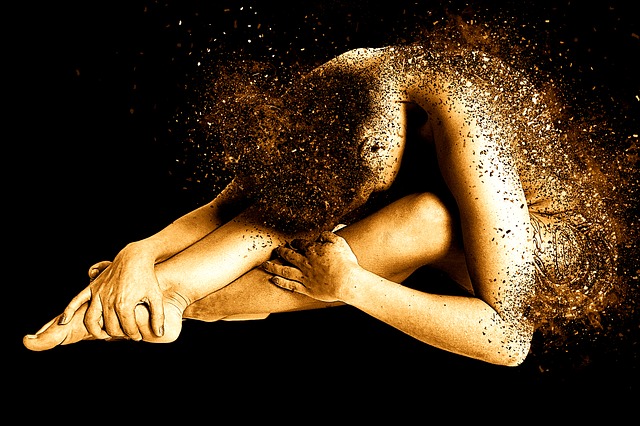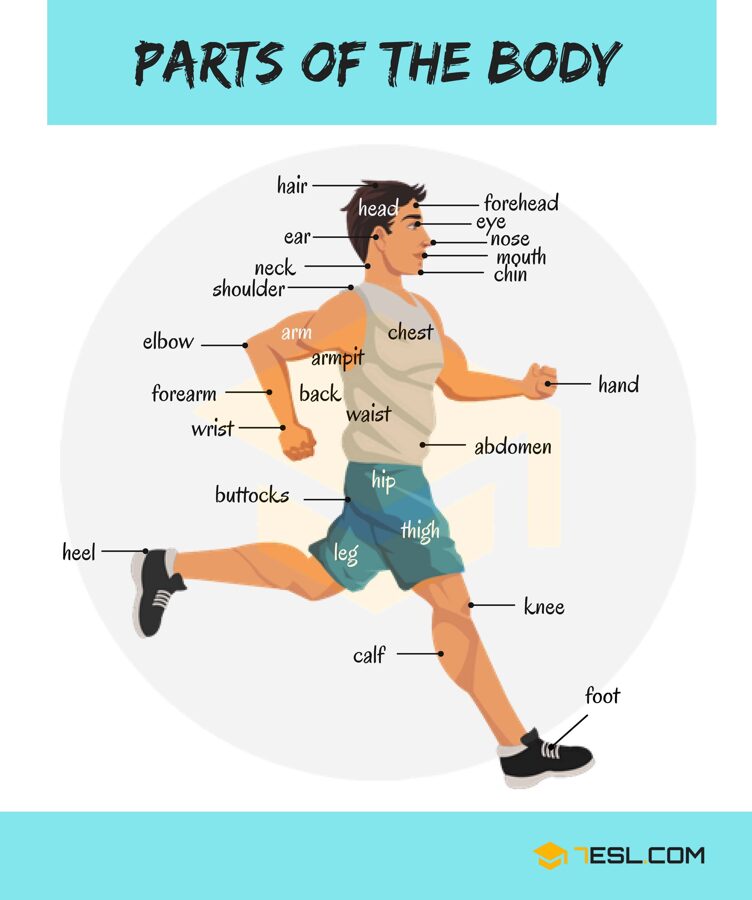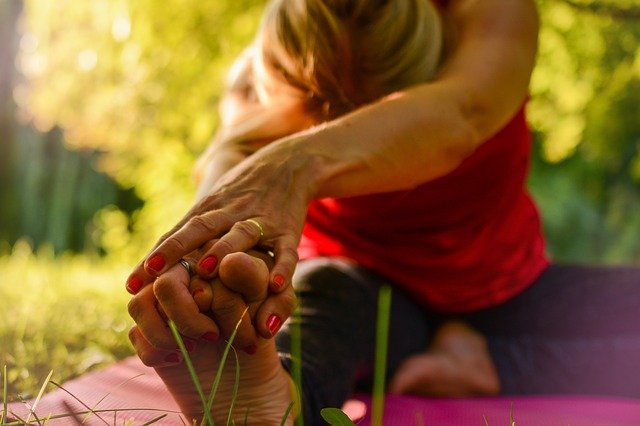From head to toe : body idioms

It's been more than a year since my last blog entry and I'd like to say thank you to the students and teachers who have inspired me to take up writing again. Where to begin? Well, for starters, it feels like the world's pulled the rug from underneath our feet (nos ha fastidiado). Living in such nail-biting (emocionante) times, it's hard not to tear your hear out (arrancarse los pelos) or worse, to lose your head (írsele la olla) completely. Like everyone else, with the state of alarm, I've been forced to spend more time at home and have had to develop coping methods for lockdown.
One method which has helped me to keep my feet on the ground (mantener los pies sobre la tierra) has been practising yoga. It's taught me a new kind of self-awareness and to notice how I feel from head to toe (de pies a cabeza). It's also inspired me to write this article and, similar in a way to what I do in my practices, we'll look at parts of the body and also study at least a couple of English idioms connected to each.
In case you firstly need to review the bare bones (lo básico), I've provided a diagram of body vocabulary. Once you've revised this and are comfortable with the words, you can head for (tirar para) the idioms.

THE HAIR
Get in someone's hair = molestar a alguien de forma continua
E.g. I'd be able to finish my work more quickly if my colleagues weren't getting in my hair!
Let your hair down = relajarse
E.g. You work too much, you should let your hair down once in a while and do something fun.
Split hairs = rizar el rizo
THE HEAD
Be all in your head = Ser su imaginación
E.g. There's no-one there - it's all in your head!
Have your head in the clouds = estar en las nubes/estar en Babia
Be/fall head over heels in love = locamente enamorado
E.g. After their first date, he fell/was head over heels in love with her.
Keep your head above water = mantenerse a flote
E.g. With all the bills they had to pay, they were struggling to keep their heads above water.
THE EYES
An eye for an eye = ojo por ojo
Have an eye for something = tener buen ojo para
Keep an eye out for something/someone = estar atento
E.g. Keep an eye out for thieves in the metro station.
See eye to eye = estar de acuerdo
E.g. We don't always see eye to eye on everything.
There is more to something than meets the eye = aquí hay gato encerrado
THE EARS
Fall on deaf ears = caer en oídos sordos
Be all ears = ser todo oídos
Be music to your ears = te suena música celestial
Somebody's ears are burning = pitarle los oídos a alguien
Play it by ear = ver qué pasa
THE NOSE/MOUTH
Look down your nose at someone or something = mirar a alguien por encima del hombro
Pay through the nose = pagar un ojo de la cara
All mouth and no trousers = mucho ruido y pocas nueces
Put your money where your mouth is = del dicho al hecho hay mucho trecho
E.g. I you think you can do better, then put your money where you mouth is!
Be left with your mouth open = quedarse con la boca abierta
THE FACE/CHEEKS/CHIN
Keep a straight face = mantener la seriedad
E.g. She couldn't keep a straight face while she was telling her friends the joke.
Tongue-in-cheek = en chiste/broma
E.g. Everyone laughed at his tongue-in-cheek comment.
Take it on the chin = aceptar sin quejarse
E.g. The losing side, although they were unhappy about the result took it on the chin and congratulated the winning team.
THE NECK
Be neck and neck = ir a la par/ser parejos
Something/someone is a pain in the neck/butt(ocks) = ser un coñazo/un pesado
Stick your neck out = jugarse la vida
THE CHEST/SHOULDERS/BACK
Have a chip on your shoulder = ser un rencoroso
E.g. He's got a chip on his shoulder about not having been to university.
Get something off your chest = desahogarse
Be/have a weight lifted off your shoulders = quitarse un peso de encima
Stab someone in the back = dar una puñalada por la espalda
THE ARMS/HANDS/FINGERS
Twist someone's arm = torcer el brazo a alguien
To have your hands tied = tener las manos atadas
Live from hand to mouth = vivir precariamente/al día
E.g. Employees who live from hand to mouth shouldn't be asked to work without pay during an economic crisis.
Lend a hand = echar una mano
Wrap someone around your (little) finger = tener a alguien comiendo de la mano
THE LEGS
Not have a leg to stand on = no tener pruebas
E.g. With no evidence to incriminate the suspect, the police had no leg to stand on.
Pull someone's leg = tomar el pelo
Cost an arm and a leg = costar un ojo de la cara
THE KNEES/TOES/HEELS
Think you are the bee's knees = creerse el rey (o la reina) del mambo
Keep someone on their toes = mantener alerta
E.g. To keep students on their toes, teachers like to give class tests every now and again.
Dig in your heels = ser cabezón
E.g. I'm going to dig in my heels on this issue because I know I'm right!
Be someone's Achilles' heel = ser su punto débil
THE FEET
Put your foot in it = meter la pata
Foot the bill = pagar la cuenta
Get cold feet = echarse atrás
E.g. Due to cold feet, the bride ran away from her own wedding.
So now it's time to face the music (dar la cara), to not lose your nerve (no perder el coraje) and get learning these idioms! But don't worry, if all these phrases are making you go weak at the knees (hacerte temblar las piernas), keep your chin up (¡ánimo!) and perhaps study the phrases just for one or a couple of body parts per day.
If learning these (or life in general for that matter) becomes too much and you feel you're struggling to keep a cool head (mantener la calma), then remember that you don't always have to shed blood, sweat and tears (sudar tinta). In order to chill out, you can try your hand at (probar suerte con) something which makes you feel good. In my case it's yoga.
All that remains to be said is: break a leg! (¡mucha suerte!)
